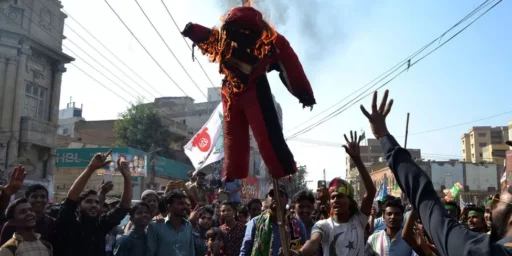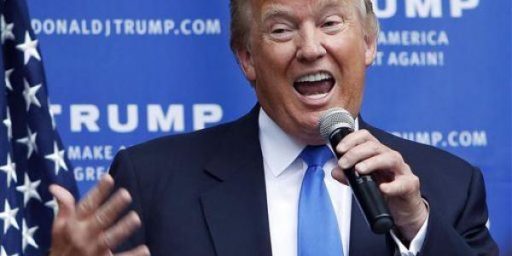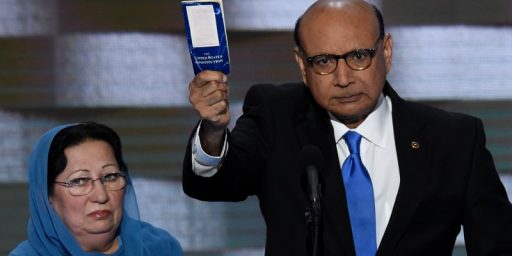A Different Kind of War
A speech given yesterday by Vice President Dick Cheney appears as an op-ed in today’s WSJ.
For many years prior to 9/11, we treated terror attacks against Americans as isolated incidents, and answered–if at all–on an ad hoc basis, and never in a systematic way. Even after an attack inside our own country–the 1993 bombing at the World Trade Center, in New York–there was a tendency to treat terrorist incidents as individual criminal acts, to be handled primarily through law enforcement. The man who perpetrated that attack in New York was tracked down, arrested, convicted and sent off to serve a 240-year sentence. Yet behind that one man was a growing network with operatives inside and outside the United States, waging war against our country.
***
Against this kind of determined, organized, ruthless enemy, America requires a new strategy–not merely to prosecute a series of crimes, but to fight and win a global campaign against the terror network. Our strategy has several key elements. We have strengthened our defenses here at home, organizing the government to protect the homeland. But a good defense is not enough. The terrorist enemy holds no territory, defends no population, is unconstrained by rules of warfare, and respects no law of morality. Such an enemy cannot be deterred, contained, appeased or negotiated with. It can only be destroyed–and that, ladies and gentlemen, is the business at hand.
We are dismantling the financial networks that have funded terror; we are going after the terrorists themselves wherever they plot and plan. Of those known to be directly involved in organizing the attacks of 9/11, most are now in custody or confirmed dead. The leadership of al Qaeda has sustained heavy losses, and they will sustain more.America is also working closely with intelligence services all over the globe. The best intelligence is necessary–not just to win the war on terror, but also to stop the proliferation of weapons of mass destruction. So we have enhanced our intelligence capabilities, in order to trace dangerous weapons activity. We have organized a proliferation security initiative, to interdict lethal materials and technologies in transit. We are aggressively pursuing another dangerous source of proliferation: black-market operatives who sell equipment and expertise related to weapons of mass destruction. The world recently learned of the network led by A.Q. Khan, the former head of Pakistan’s nuclear weapons program. Khan and his associates sold nuclear technology and know-how to outlaw regimes around the world, including Iran and North Korea. Thanks to the tireless work of intelligence officers from the United States, the U.K., Pakistan, and other nations, the Khan network is now being dismantled piece by piece.
And we are applying the Bush doctrine: Any person or government that supports, protects, or harbors terrorists is complicit in the murder of the innocent, and will be held to account.
None of this is new of course. But it bears repeating every once in a while. For one thing, it reminds us that, as fighting organized crime requires different tools than catching ordinary criminals, the new brand of international terrorism is different than the variety we entountered in decades past. Further, the above excerpt belies the notion that we’re only using military force in this war. While it’s perfectly reasonable to debate the balance of “law enforcement” versus “force” that should be used in the fight, we shouldn’t pretend that it’s an either/or scenario.





